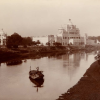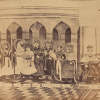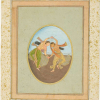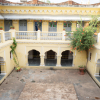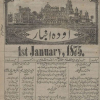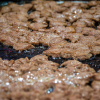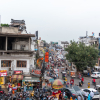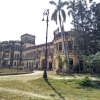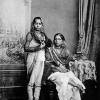Aside from being writer and journalist from Malabar, Shihabudheen Poythumkadavu is also an excellent cook. In this conversation with Dr Azeez Tharuvana, he talks about the prominence of Thalaserry town in the culinary map of Malabar. He dwells on its food diversity and practices, and also examines how cooking is akin to writing.
Following is a translated transcript of the conversation.
Azeez Tharuvana (AT): How do you examine the food diversity of Malabar?
Shihabudheen Poythumkadavu (SP): Malabar occupies a very important place in the culinary map of Kerala, especially for non-vegetarian dishes. Thalassery is actually the epicenter of its food diversity. Places like Thalassery, Kozhikode, Kannur, etc., have a tradition of popular non-vegetarian dishes. Thalassery is a place where you can find a well-travelled Muslim community. Actually, if you ask me, it would have been right to call Thalassery the cultural capital of Kerala. The first printing press was started here; the first language dictionary came from here. Also, in Thalssery, you can find lots of upper-class Muslims. You can find elderly Muslim ladies fluent in English here. A lot of newspapers were started from here. So we have to take into account this background when we evaluate the Malabar food culture. We usually say there are three C’s in Thalassery—cricket, circus and cake. There is even a circus training centre at Thalassery. One of the reasons for its prominence was that it was a port town. It had seen great swells of Muslim culture. Thalassery enjoyed the limelight before Kozhikode grew as a city and overshadowed it. Now I am working with Chandrika (newspaper) in Kozhikode. Chandrika was, in fact, started in Thalassery. With the arrival of motor vehicles, somehow Thalassery’s prominence declined and Kozhikode's rose. If you trace the ancestry of ancient Muslim families in Malabar, you will see that their roots are, somehow, linked to Thalssery. So it is a culturally rich place. This rich culture itself is one of the major reasons for it being the food capital. We may even call it a museum of non-vegetarian food items. Take the dishes. Biriyani occupies a prominent place. So this diversity is owed to the fact that it was a port city and many people from Yemen, regions of Russia, etc., came and settled down here. We should remember that when a culture comes, its food also accompanies it. That is obviously one of the reasons. Another reason is the fondness of Muslims for non-vegetarian food.
I remember the pre-Gulf time in Malabar. There was so much poverty. For the poor, their only hope to eat good food was when a wedding came along. A wedding is the time of temporary liberation from poverty.
AT: Being a person who was born and brought up in the vicinity of Thalassery, the so-called food capital of Malabar, how would you look at the culture closely associated with food?
SP: Food culture and social behaviour are connected. Weddings are special occasions to celebrate food. Malabar followed the matrilineal system, i.e., the custom of girls not leaving their birth house, and having their husbands come and stay with them. So the husband becomes the guest. Food, therefore, becomes a medium through which this guest is honoured and taken care of. I remember in my childhood, the new bridegroom used to stay at his wife’s house for 30 days after the wedding. It is said that the groom would become fat after eating all that delicious food at the wife’s place. The food spread becomes more lavish and diverse as the class level rises. The diversity is amazing. The dishes that you make with egg itself are numerous—like muttamala, etc. Then there are lots of snacks, like unnakkaya. If you look at Kerala in general, the food used to be very simple. Just rice gruel. The food culture in Malabar grew and prospered because of the reasons I mentioned above. Like the coming of people from the Arab nations, from Yemen, from Russian regions, etc.
And food is seen as an expression of love and hospitality. Suppose you visit a house and you take leave without even having a cup of tea, then that would be interpreted as the expression of your displeasure towards them.
AT: In Malayalam we see there are many writers who are good cooks as well. For example, Vaikom Muhammed Basheer. As a writer, could you say something about this?
SP: Not just Basheer, even Punathil Kunjabdulah was an excellent cook. Writing a literary work is like cooking and vice-versa. Ingredients of both should be good. Another thing is that an individual flavour should be present in both cooking and writing. See, I live in Thrissur. We have a different food culture here. When I come here to Kozhikode, my mother and sister serve me food. And I definitely can identify whether it is made by my mother or my sister. I have often wondered about this: How a dish tastes different when it is cooked with the same ingredients and tools but by a different person? It is the same case in writing. It is where individualistic flavour comes in; something seen most in cooking and writing.
AT: At a time when the rest of Kerala was rebelling against caste discrimination, the Malabar Muslims had a communal eating practice where you sit around a supra and eat together. Is it still practised?
SP: Can’t really say it is still being practised. That tradition came from Arabia. Supra is spread and people sit around a big plate and eat. There were such customs here too. Especially on the special occasion of Eid (Eid-ul-Fitr). I remember, at my ancestral house, the supra was hung from the wall.
AT: Yes, it was very common in Malabar, supras made of palm-leaf were hung from the wall.
SP: Yes, and they would stay there till the next special occasion came.


